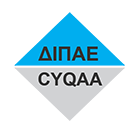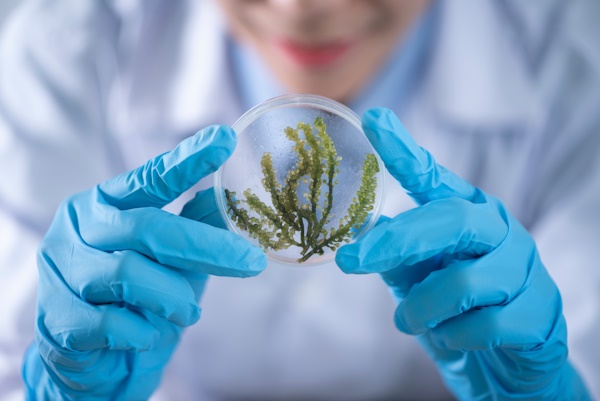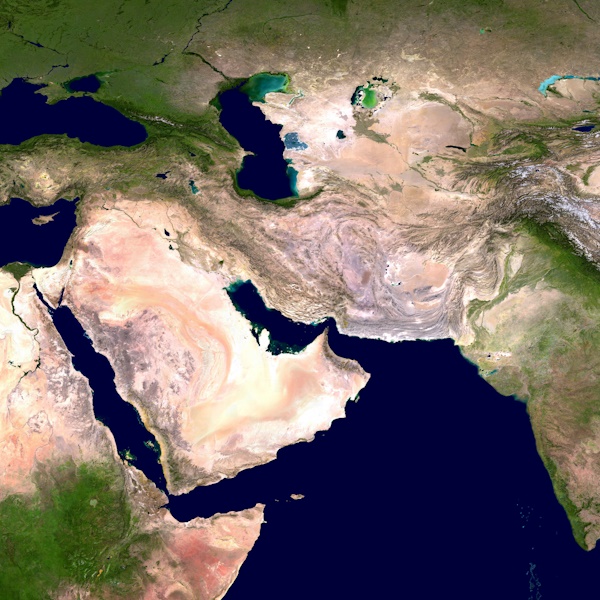
Magister Scientiae (Msc)
120 ects
Greek
Internationally Recognised
Online application submission

It is now commonly accepted that human health and prosperity depend on the quality of the environment, which is exposed to relentless human intervention on a daily basis. Sustainable management of natural resources, the implementation of decontamination technologies and renewable energy sources, as well as the development of appropriate methodologies for ecosystem protection, energy management, solid and liquid waste management are just some of the means required to improve environmental management.
The postgraduate degree in “Environmental Conservation and Management” adopts a multidisciplinary approach to environmental protection aimed at contributing to the dialogue within social and political levels while, at the same time, offering students a high level of expertise in environmental management. The objective is to promote sustainable management practices and techniques regarding environmental issues.
EUROPEAN CREDIT TRANSFER SYSTEM (ECTS): 120
TEACHING LANGUAGE: Greek
LEVEL: Masters
DEGREE AWARDED: Magister Scientiae (M.Sc.)
The programme is evaluated and accredited by:
Graduates of the M.Sc. in “Environmental Conservation and Management” will be able to:
- apply widely accepted techniques and tools to solve environmental problems
- carry out environmental impact assessments or design photovoltaic parks and wind farms
- gain the skills required in environmental research and actively participate in major environmental projects
- employ a multidisciplinary approach in addressing complex environmental problems
- combine work experience with current trends in environmental management and protection
Based on the abovementioned, those who will benefit from this Postgraduate Programme are:
- University graduates in Forestry, Agriculture, Biology, Geology, Physics, Chemistry. Environmental Science and Engineering or other related scientific fields.
- Employees in the public sector dealing with environmental issues.
- Employees in non-governmental environmental organisations.
- Graduates with a broad interest in the environment and environmental protection.
The graduates of the Postgraduate Programme in "Environmental Conservation and Management" can be employed:
- In Government Departments (mainly with a portfolio related to environment, ecosystems, agriculture, energy).
- As business consultants and freelancers in the fields of buildings' energy efficiency, generation and transmission of electricity, installation and operation of renewable energy systems, environmental studies, the environment technologies industry, safety and workplace hygiene, design and management of heating, air-conditioning and energy management systems, development of strategic waste management studies liquid and solid fuels, the design and implementation of anti-pollution technologies, the drawing up of species and habitat management and monitoring plans.
- In various private organizations as Environmental Management Officers and Environmental Inspectors,
- In the education sector (Public and Private Secondary Education, Higher Education following Doctoral Studies),
- In Environmental Non-Governmental Organizations
- In Research Centers and Laboratories.
The Open University of Cyprus (OUC), through its participation in the European project "Liaison Offices with the Labour Market", offers to students of all its programmes of study, the optional and free of charge Thematic Unit (i.e. Module) entitled "Industry Placement". This module provides students opportunities for a placement to gain professional experience in their particular field of study, and the hosting institution can be any public or private organisation operating in the Republic of Cyprus.
Each student has the right to participate in this offering once or twice during his / her studies, provided that s/he meets the required conditions.
Request more information by contacting the OUC Liaison Office here.
1. Applicants for admission to this particular Postgraduate Programme of Study must:
- on the day of their enrolment at the University, hold a university degree from an accredited tertiary education institution.
Applicants expected to obtain a Bachelor’s Degree until enrolment in the Open University of Cyprus, or have fulfilled their degree requirements, but the issuing of their Degree is pending, are still entitled to apply for admission.
2. Have a very good knowledge of English: literature in English (scientific articles and books) is widely used. It is therefore necessary for students to have familiarity with English for studying such texts, but also for attending lectures in English. Particularly in the preparation of their Master’s Thesis, students will mainly use English bibliography. However, students will not be required to produce any assignments in English.
3. Additional requirements, necessary for studying at the OUC which utilises the methodologies of open and distance learning supported by technology, include computer skills and access to e-mail and the Internet.
The total cost of the fees for this postgraduate program is 3,900 Euro.
In terms of granting tuition discounts and/or scholarships, the related University applicable policies are followed.
PROGRAMME STRUCTURE
The Programme offers two (2) specialisations / academic directions: (a) Energy and Pollution and (b) Terrestrial Ecosystem Conservation and Management.
To receive a Master’s degree title in "Environmental Conservation and Management", students must successfully complete the academic requirements of six (6) semester Compulsory Thematic Units, i.e. Modules (10 ECTS credits each), three (3) semester Elective Modules (10 ECTS credits each), and successfully complete a Master’s Thesis (30 ECTS credits: Master Thesis I corresponds to 10 ECTS credits and Master Thesis II corresponds to 20 ECTS credits).
| Modules | Specialization | Semester | Mandatory Module / Elective Module / Mandatory Module of the chosen academic specialisation | Pre-requisite Modules | ECTS | |
| ΔΠΠ511 | Sustainable Development Ι | All | Fall/Spring | Mandatory Module | 10 | |
| ΔΠΠ512 | Research Methods | All | Fall | Elective Module | 10 | |
| ΔΠΠ513 | Tools for Environmental Impact Assessment | All | Fall | Mandatory Module | 10 | |
| ΔΕΕ211 | Environmental Protection Law | All | Fall | Elective Module | 15 | |
| ΔΠΠ514 | Ecosystem Services | All | Spring | Elective Module | 10 | |
| ΔΠΠ521 | Sustainable Development ΙI | All | Spring | Mandatory Module | 10 | |
| ΔΠΠ522 | Remote Sensing and GIS | All | Spring | Elective Module | 10 | |
| ΔΠΠ523 | Conservation and Management of Freshwater Ecosystems | All | Fall | Elective Module | 10 | |
| ΔΠΠ524 | Water-Food-Energy Nexus | All | Spring | Elective Module | 10 | |
| ΔΠΠ699 | Master Thesis Induction | All | Fall/Spring | Mandatory Module | ΔΠΠ511 | 0 |
| ΔΠΠ701Α | Master Thesis I | All | Fall/Spring | Mandatory Module | ΔΠΠ511, ΔΠΠ699 | 10 |
| ΔΠΠ613 | Climate Change in the Natural and Anthropogenic Environment | All | Fall | Mandatory Module of the chosen academic specialisation | ΔΠΠ511 | 10 |
| ΔΠΠ611 | Solid and Liquid Waste Management | Energy and Pollution | Fall | Mandatory Module of the chosen academic specialisation | ΔΠΠ511 | 10 |
| ΔΠΠ612 | Conservation Biology | Terrestrial Ecosystem Conservation and Management | Fall | Mandatory Module of the chosen academic specialisation | ΔΠΠ511 | 10 |
| ΔΠΠ701Β | Master Thesis II | All | Fall/Spring | Mandatory Module | ΔΠΠ701Α | 20 |
| ΔΠΠ621 | Renewable Energy Sources | Energy and Pollution | Spring | Mandatory Module of the chosen academic specialisation | ΔΠΠ511 | 10 |
| ΔΠΠ622 | Terrestrial Ecosystems Management | Terrestrial Ecosystem Conservation and Management | Spring | Mandatory Module of the chosen academic specialisation | ΔΠΠ511 | 10 |
| Total | 120 | |||||
| Industry Placement | ||||||
| ΔΠΠ695 | Industry Placement (1st placement) | All | Elective Module | ΔΠΠ511, ΔΠΠ513 | 5 | |
| ΔΠΠ696 | Industry Placement (2nd placement) | All | Elective Module | ΔΠΠ695 | 5 | |
Each student can optionally enrol, once or twice, in the free of charge Thematic Module "Industry Placement", which awards five (5) ECTS. The module offers a structured placement, designed to offer students specific industry and professional experience in their particular field of study, and to allow them to build their skills in a real-world setting.
ΔΠΠ695 - Industry Placement (1st placement)
ΔΠΠ696 - Industry Placement (2nd placement)
Request more information by contacting the OUC Career and Liaison Office here
Academic Personnel
Ioannis Vogiatzakis, Professor, ΔΠΠ612, Module coordinator,
Antonis Zorpas, Associate Professor,
Marinos Stylianou, Assistant Professor, Programme Director,
Irene Voukkali, Lecturer,
For additional information, please contact Ms. Marianna Prodromou (
Contact Form

























